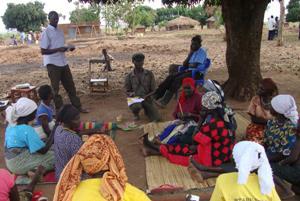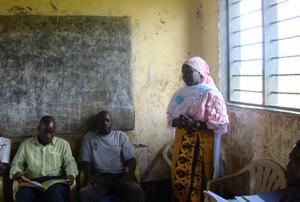Imran Ejotre
The aim of the project is to organise rural women under an umbrella organisation, train them to adopt new agricultural technologies and link them to financial institutions, markets and government programs.

This project is a leadership development initiative to train and empower rural women on the emerging sustainability challenges like food security, environmental degradation and adaptations to climate variability that rural communities in the country face, and how they can contribute in their various capacities to address these challenges. The project is based on the background that agriculture is the main source of income and livelihood for Uganda and is mainly undertaken by women who provide majority of rural peoples’ family food and maintain household food security. However, many lack education and technical skills, and have continued to use traditional agricultural practices which are often inefficient, requiring more land, time and effort, producing perpetually low yields and have adverse conservation implications. Harvest and sale of natural products such as fuel wood, charcoal, poles, etc. to supplement extra family demands have currently threatened the biodiversity of the unstudied and non protected forests of the project area (Mount Midigo forests in Yumbe district, West Nile region). The region now suffers acute food shortages despite its fertile agro-ecological zones.

The project aims to organize rural women groups, build their capacity and link them to new agricultural technologies, financial institutions and markets. It is expected to contribute towards achievement of the broader objective of the leadership development initiative through:
Forming pilot self help farming groups and organize them into one registered Community Based Organization (CBO). This CBO will serve as a ‘farmer field school’ for training and sharing of experiences on good practices by the rural women groups and capture indigenous knowledge on soil conservation, planting regimes, tilling, weeding, harvesting, preservation and storage of crops.
Training rural women on how to raise nursery beds for high value quick yielding crops such as onions, tomatoes and other vegetables; conserve soil water through mulching and other techniques; prepare manures and compost to improve soil fertility; select and plant a few high yielding, high value crops rather than planting many low yielding crops.
Linking the groups through the CBO to relevant government offices, enhance their access to advisory services and to improved seeds and tree seedlings for practice of agro-forestry. It is also expected to link the groups to financial institutions for access to credits, and to other farming organizations for access of information to better markets